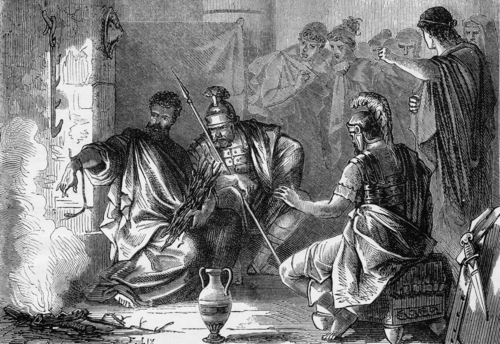Apostolic Ministry
Dear Pastor, Preacher, or Bible Teacher –
God’s blessings to you! I pray you are blessed in your walk with God, your family, and your service unto God, His people, and a needy world.
Here’s a quick thought from Acts 28:
But when Paul had gathered a bundle of sticks and laid them on the fire, a viper came out because of the heat, and fastened on his hand. So when the natives saw the creature hanging from his hand, they said to one another, “No doubt this man is a murderer, whom, though he has escaped the sea, yet justice does not allow to live.” But he shook off the creature into the fire and suffered no harm. However, they were expecting that he would swell up or suddenly fall down dead. But after they had looked for a long time and saw no harm come to him, they changed their minds and said that he was a god. (Acts 28:3-6)
I love this account of what happened to Paul after this ship carrying him (and many others) wrecked on the island of Malta. I think there is a lot for us to learn as pastors, preachers, and Bible teachers here.

Paul was a servant. There he was, cold and wet – yet the great apostle gathered wood for the fire, even though there were probably scores of people among the 276 passengers and crew far more suited for the job. Paul’s servant heart was always evident.
Being a godly servant did not prevent all trouble for Paul. A snake came out of the wood and bit Paul, even sticking to his hand.
The adversity didn’t seem to trouble Paul. He didn’t scream, “Why God? I can’t take any more of this!” or “Can’t You see I’m serving You?” Paul didn’t look at those sitting by the fire and say, “You lazy people! If you gathered wood instead of me, this wouldn’t have happened to me!”
God protected Paul: After the shipwreck, Paul knew beyond any doubt that he would make it to Rome as God promised. If a storm or a shipwreck couldn’t stop God’s promise, then a snake wouldn’t either. Paul suffered no harm.
Paul didn’t rise or fall on the opinions of others. Others wanted either to condemn or glorify Paul. The people of Malta first thought Paul was the target of the anger of the gods; then they decided he was a god! Paul couldn’t take their condemnation or their glorification seriously. He was a servant of the living God.
I don’t anticipate many of us will suffer shipwrecks in the coming weeks. But God helping us, we can:
– Be servants to others, not just preachers and teachers.
– Understand that some trouble will come our way.
– Have God’s peace in whatever trouble comes.
– Trust God’s protection.
– Refuse to rise or fall on the opinions of others.
Then our ministry will be “apostolic” in just the right way!
Blessings to you in Jesus’ Name – David Guzik
Click Here to Receive Email from David for Pastors, Preachers, and Bible Teachers





